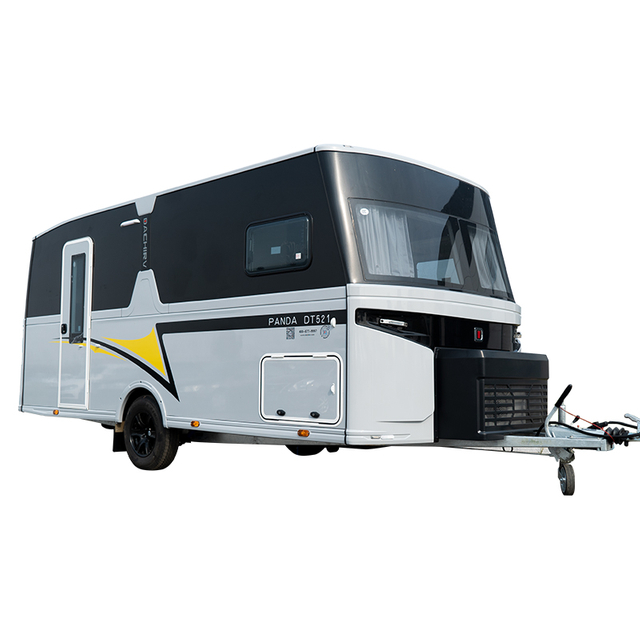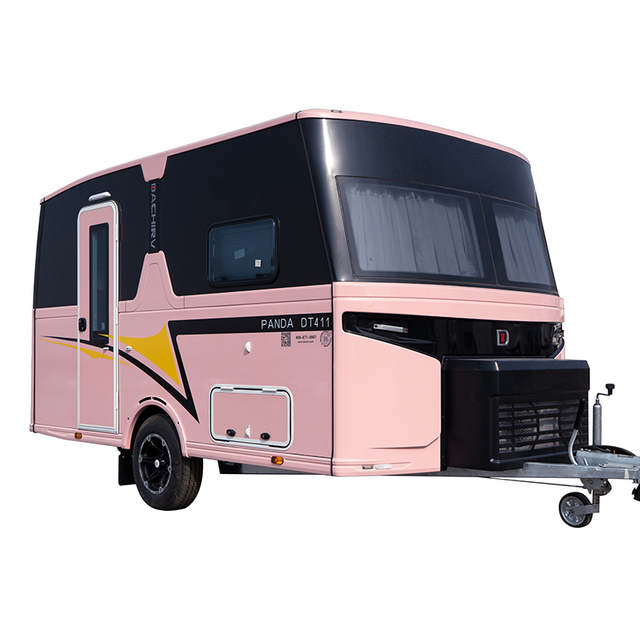

Views: 0 Author: Site Editor Publish Time: 2025-04-14 Origin: Site








Have you ever dreamed of ditching the traditional home and living full-time on the road in an RV? For many, it’s an appealing thought—freedom, adventure, and a simpler lifestyle. But what if I told you that in certain places, RV living could actually be illegal?
In this article, we’ll explore the key reasons why full-time RV living is restricted or outright banned in some areas, from zoning laws to safety concerns. You’ll learn about the challenges RV dwellers face and what you can do to navigate the legal landscape and make the most of the RV lifestyle.
Living in an RV is not inherently illegal, but certain laws and regulations can make it challenging or impossible in some areas. Local zoning laws, safety concerns, and restrictions regarding property aesthetics play major roles in determining whether living in an RV is permitted in a specific location. Here are the top reasons why RV living may be restricted or considered illegal in certain areas.
Zoning laws are one of the primary reasons RV living can be restricted. These laws govern how land can be used in specific areas. For example, some areas are designated for residential homes, while others are designated for commercial or industrial use. In these zones, RV living may not be permitted, as RVs are often classified as vehicles rather than permanent residences.
In urban areas, the zoning laws are particularly strict. Many cities and counties require a permanent structure, such as a house, for someone to legally reside there. Since an RV is a vehicle, it often doesn't meet the legal definition of a residence in these zones.
Safety and sanitation are significant concerns when it comes to living in an RV full-time. Some jurisdictions may worry about issues like proper waste disposal, lack of plumbing or sewage systems, and inadequate heating or cooling. In many places, RV living is only permitted if the vehicle is connected to appropriate utility services, including electricity, water, and sewage disposal.
Without proper infrastructure, there could be a risk of environmental contamination or public health issues. Communities with concerns about these risks may restrict full-time RV living to maintain public safety and sanitation.

Another factor contributing to the illegality of full-time RV living is the desire to maintain the aesthetic standards of neighborhoods or communities. Many homeowners and local governments worry that having RVs parked on properties for extended periods will lower property values and disrupt the visual harmony of a neighborhood.
Some residential areas, particularly in suburban and urban regions, have strict codes that prohibit long-term parking of RVs in driveways or on public streets. This is often done to preserve the "look" of the neighborhood and ensure that properties appear well-maintained.
Many places allow short-term RV living, such as camping or staying in an RV for vacation, but they draw the line at permanent residency. RVs are typically designed for temporary stays rather than long-term living. This is especially true for RV parks and campgrounds that have designated areas for short stays.
In contrast, full-time RV living is often viewed as a permanent solution to housing, which some areas do not accommodate. Municipalities may limit the amount of time an RV can stay in one spot, often between 14 days and six months.
Laws regarding RV living can vary dramatically by state, county, and even city. Some states, such as California and Florida, are more lenient and allow full-time RV living as long as the person complies with local regulations. Other states, like Delaware and Hawaii, have stricter laws that limit or prohibit RV residency on private property.
While some regions allow RV living on personal land, others have zoning laws that make it illegal to park an RV for extended periods. Additionally, local homeowners associations (HOAs) may have their own set of rules that prevent RV parking on private property, even if the landowner is in compliance with state laws.
While RV living is not banned outright in most states, certain regions are known for their stricter regulations. Below is a comparison of some states with the most notable laws surrounding RV living.
| State | Restrictions | Details |
|---|---|---|
| Hawaii | Generally not allowed | Strict regulations, limited RV park options, zoning laws |
| Delaware | Only in designated RV parks or campgrounds | Fines for staying longer than 24 hours without permission |
| California | Legal with local ordinances | Up to 14 days without a permit on public lands |
| Texas | Legal on private property | Must comply with local ordinances, utility connections |
| Florida | Legal in most areas with county regulations | Must connect to utilities like water, sewage, and electricity |
| Arizona | Legal with local restrictions | Check local ordinances for city-specific rules |
Despite the restrictions in some states, many others allow RV living full-time. In these areas, RVs can be used as a primary residence, as long as the person adheres to local zoning laws, registers the vehicle properly, and ensures utilities are available.
South Dakota: Known for being RV-friendly, South Dakota allows full-time RV living with few restrictions. Many RV parks and campgrounds accommodate long-term stays.
Alabama: Full-time RV living is legal, but the vehicle must be registered with the local county office.
Missouri: RV living is legal on private property or in designated parks, but local ordinances may still apply.

If you're interested in living in an RV full-time, there are several ways to ensure you're compliant with the law:
Research Local Zoning Laws: Always check the local zoning regulations before parking your RV. Ensure that the area allows long-term stays or RV residency.
Find RV Parks or Campgrounds: Many parks and campgrounds are zoned for RV living. These locations offer the necessary utilities and are usually legally approved for long-term stays.
Consider Rural Areas: Zoning laws tend to be less restrictive in rural areas, making them ideal for RV living. Research areas that permit RV residency with fewer regulations.
Invest in Off-Grid Solutions: If you plan to live in your RV without hookups, invest in solar panels, composting toilets, and water filtration systems. These off-grid solutions help ensure you're self-sufficient and in compliance with local regulations.
Check Homeowners Association (HOA) Rules: If you own private property in a suburban area, check with your HOA to see if there are any restrictions on RV living. Some HOAs might prohibit or restrict RV parking.
Living in an RV can be an incredibly rewarding lifestyle, offering mobility, flexibility, and a lower cost of living. However, the legality of full-time RV living depends on many factors, including zoning laws, safety concerns, and local regulations. Before deciding to live in an RV, it's essential to understand the specific laws in your area, including any restrictions on long-term parking or residency.
If you're ready to embrace the RV lifestyle and are looking for guidance on where to park and how to stay compliant, visit us for expert advice on RV living solutions, off-grid setups, and more. With the right knowledge and preparation, you can enjoy the freedom of full-time RV living without running into legal hurdles.
Q: Why is living in an RV illegal in some places?
A: Living in an RV is illegal in certain areas due to zoning laws, safety concerns, and property aesthetics. Local governments often regulate how land is used, and RVs may not meet the criteria for permanent housing.
Q: Can I live in an RV on my own property?
A: In many places, you can live in an RV on your own property, but local zoning laws and homeowners association (HOA) rules may apply. Always check with local authorities before setting up permanent residence in your RV.
Q: What are the main restrictions for RV living in urban areas?
A: Urban areas often have stricter zoning laws that prohibit long-term RV living. These restrictions are due to concerns about property values, aesthetics, and the lack of necessary utilities for RVs.
Q: Which states are the most RV-friendly for full-time living?
A: States like South Dakota, Florida, and Texas are generally more RV-friendly, offering fewer restrictions on full-time RV living. However, local ordinances and zoning laws may still apply, so always verify before setting up.
Q: What should I consider before choosing an RV for full-time living?
A: When choosing an RV for full-time living, consider factors like size, amenities, and whether it can be hooked up to necessary utilities. Off-grid solutions, like solar panels and composting toilets, can help overcome some legal restrictions and improve your experience.